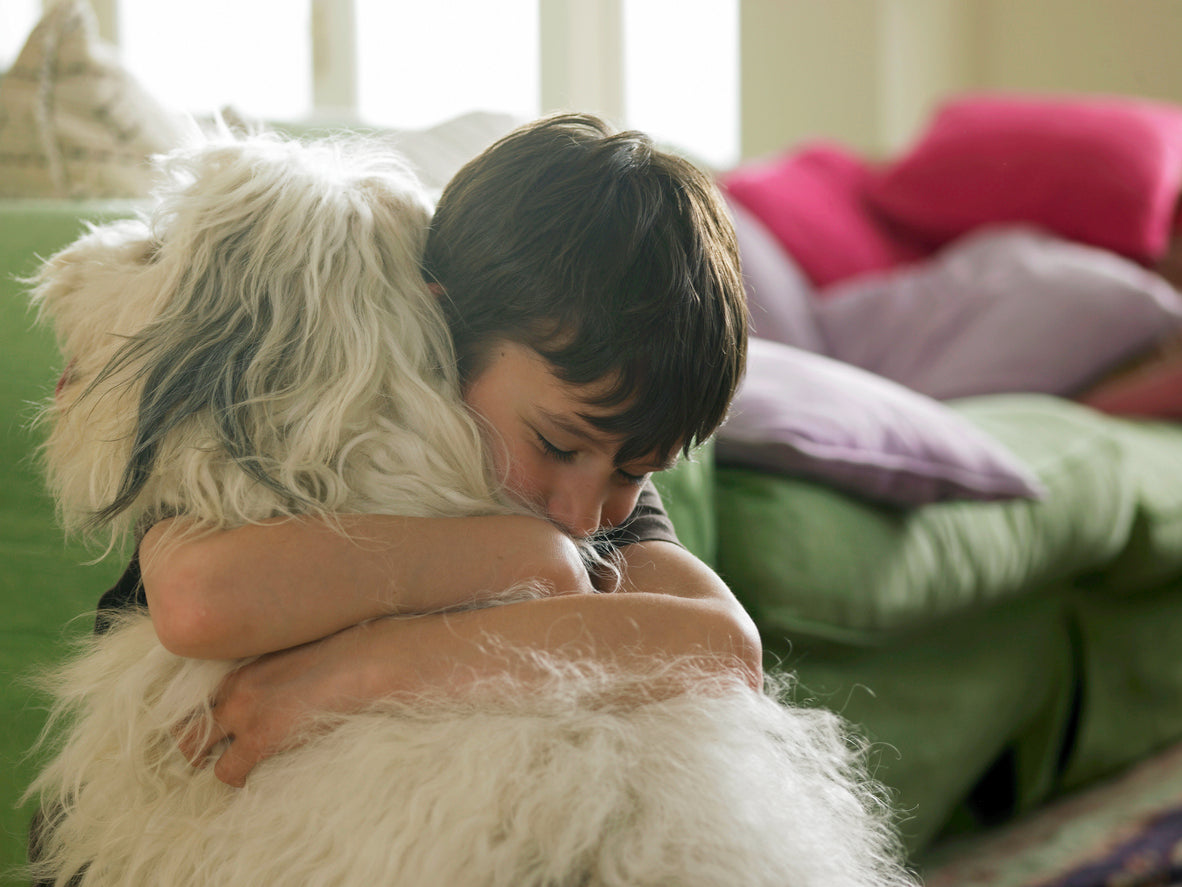We all want to give our children the best start in life.
Whether we’re trying our best to get kids to eat their greens or making sure they’re not spending too much time on the iPad, it’s all to help them become happy, healthy adults.
Besides plenty of sleep, exercise and a well-balanced diet, emotional literacy is also an essential part of a child’s development that has a profound effect on a child’s future.
Emotional literacy refers to a child’s ability to identify, understand and respond to their emotions in a healthy way, as well as have empathy for others.
This is important, as kids with good emotional literacy skills are better able to manage frustrations, have better focus, get into fewer fights and do better at school.
Some kids will be naturally more emotionally literate than others, but all children need this part of their childhood to be nurtured.
How emotional literacy can help with your child’s development
The emotional literacy skills kids learn will last a lifetime, helping them appropriately respond to many different scenarios well into adulthood.
Some of the skills born from good emotional literacy are:
Learning to self-soothe: Being able to recognise the emotions they’re feeling can help kids learn which self-soothing techniques work best for their situation.
Whether they do a quick breathing exercise when they’re anxious, or go for a quick walk when they’re angry, learning to recognise their emotions and use the appropriate self-soothing behaviours will help them work through their emotions more effectively.
Developing resilience: Being aware of how they’re feeling and having the tools to manage those feelings helps kids build resilience.
They will be better able to handle strong emotions as they put their recognition and self-soothing into practice, continuing to build that resilience over time.
This means when they’re faced with a problem, they can come up with a solution without wallowing in their emotions.

Improved social skills: Emotional literacy helps kids develop empathy- the ability to understand another person’s feelings.
Empathy can help kids connect with others, prevent bullying and help them make friends.
Building positive relationships with others: Emotional literacy can help kids strengthen bonds with many different people, including their parents, teachers, family and friends. The empathy skills that come from emotional literacy makes it easier to connect with other.
So how do we develop emotional literacy in children?
Talk it through: Talking to your children about emotions is one of the best places to start.
It starts with you: Children copy what they see- just ask anyone who’s accidentally said a bad word in front of a child! To teach children emotional literacy, it helps to model those behaviours.
If you’re angry or upset, try saying something like “I’m feeling a bit sad right now, let’s talk about it when I’ve had a rest”. This shows your child how to handle stronger emotions like sadness, in a way that’s healthy and respectful of both parties.
Label feelings: As part of Spacetalk new Wellness update, the Feelings feature lets kids communicate their emotions in a simple, child friendly way by tapping the emoji that best reflects how they feel.
By doing this, kids learn to consider how they’re feeling, helping them to understand how different emotions feel in the mind and body.
This awareness is essential in forming the foundation of many emotionally literate behaviours, and the more your child practices labelling their emotions, the easier it will be.
Validate their emotions: “I know you felt scared when you heard that big thunderclap. I feel scared when I hear really loud noises, too.”
Susan David, a Harvard psychologist and author of “Emotional Agility.” says When we can take the judgment out of emotions, David says, “we can start to help kids create space between their feeling and their response to that feeling.”
Help them to recognise others might feel: When you’re reading or watching tv with your child, ask questions to help your child step into the shoes of a character. Questions like ‘how do you think that made her feel?’ or, ‘how would you feel if that happened to you?’ are a great start in getting kids thinking more deeply about other peoples feelings and building those empathy skills.
Emotional literacy is an essential skill that will help your child in many different areas of life throughout their childhood and well into their adult life.
The wellness features are currently available on Spacetalk devices purchased through the Spacetalk online store and approved retail partners only. Spacetalk is a consumer grade general wellness device, not a certified medical device. Spacetalk wellness features are not intended for medical diagnostics. The information provided in this website or the Spacetalk mobile application is not a substitute for obtaining proper professional care or services. You should seek independent advice from a medical professional as required.

Share:
What Fitness and Heart Rate Data Can Reveal About Your Child’s Wellbeing
How Talking About Feelings Can Help Your Child's Development